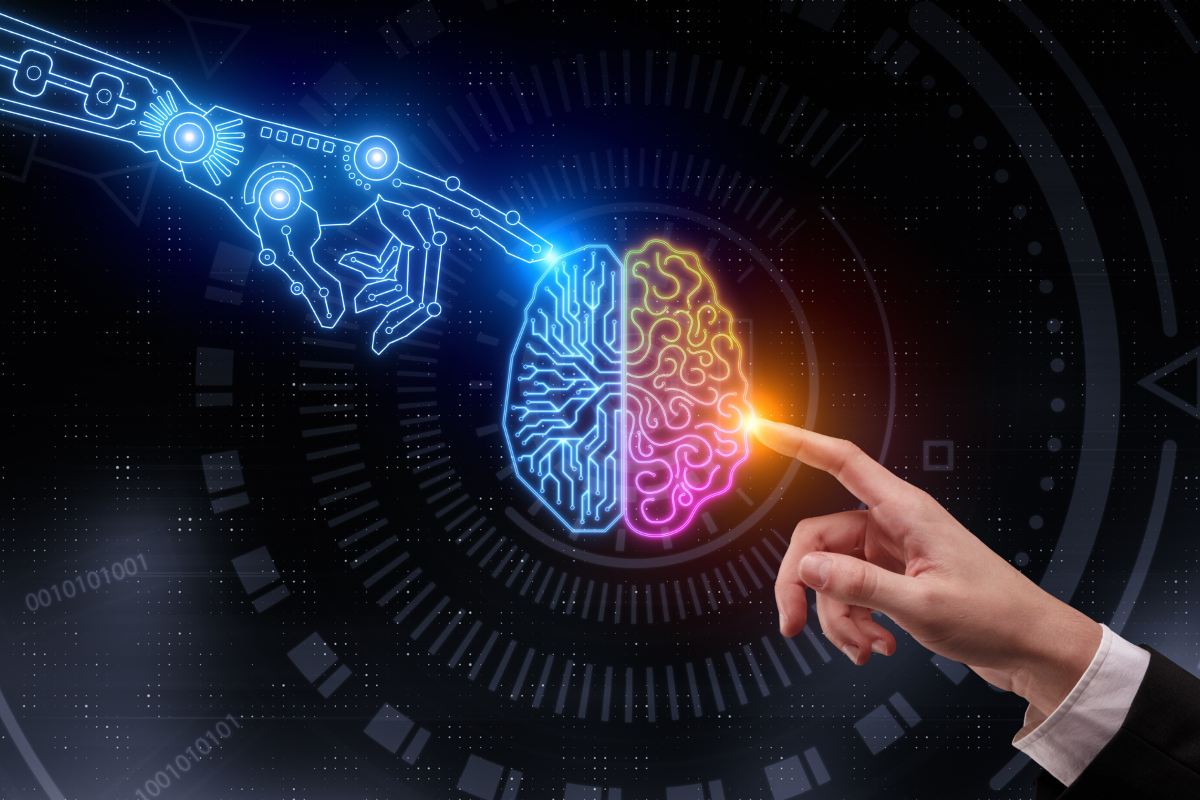By Charlie Barlow – founder and CEO of Health in Hand, an app-based doctor video consultation platform launched in Dubai in 2017.
Artificial intelligence (AI) has rapidly evolved from a niche technology into a mainstream tool with transformative potential across all industries, nowhere more so than in the health and wellness space. From predictive diagnostics to personalised nutrition, AI is reshaping how individuals and populations engage with their health.

Why AI and Wellness Are an Unstoppable Combination
The intersection of AI and wellness isn’t about replacing human expertise, it’s about amplifying it.
Health data, once controlled by clinics and confined to annual check-ups, is now constantly available via wearables, health apps, and connected devices.
AI excels at making sense of this vast, often fragmented data and if used correctly, it can vastly can improve healthcare outcomes.
AI systems can help predict potential health issues before they escalate, allowing for the recommendation of hyper-personalised interventions, and even influence how public health policies are determined and funded.
This offers fertile ground for innovation allowing for the creating of solutions that aren’t just reactive but proactive, and that serve populations at scale.
Real World Applications Where AI Is Making a Difference in Health Outcomes
Predictive Health Analytics: AI models can analyse patient history, lifestyle factors, and genetic data to predict the likelihood of developing chronic conditions such as diabetes, cardiovascular disease, or mental health disorders.
Personalized Wellness Plans: AI-powered platforms can recommend personalised fitness programs, dietary plans, and stress management strategies based on individual preferences and health needs.
Remote Monitoring and Virtual Care: AI tools can enable continuous health monitoring via wearables, alerting users and healthcare providers to anomalies and challenges in real time. As the saying goes, ‘early intervention saves lives’.
Public Health Management: AI can assist governments and regulators in tracking disease outbreaks, identifying vulnerable communities, and optimising healthcare resources.
Top Tips for Entrepreneurs Looking to Integrate AI into Wellness
1. Focus on Specific Health Outcomes
Avoid trying to fix everything. Choose a particular problem – whether it’s improving sleep quality, reducing stress, or preventing heart disease – and build AI applications that deliver a measurable impact in that area.
Focus on producing positive real-world outcomes rather than purely collecting ‘nice to have’ data .
2. Collaborate with Health Experts
AI algorithms are only as good as the data and context behind them.
Partner with clinicians, nutritionists, fitness and wellness coaches, and mental health professionals to ensure your solutions are both ethical and effective.
3. Prioritize Data Privacy and Transparency
Health data is sensitive. Make data security a cornerstone of your offering, and be transparent with users about how their information is collected, stored, and used. Trust is critical in something as sacrosanct as healthcare.
4. Design for Accessibility
AI in wellness shouldn’t be a luxury. Aim to create tools that are intuitive, affordable, and inclusive — particularly for the underserved populations who stand to benefit the most.
5. Stay Ahead of Regulation
Healthtech is a heavily regulated space, and AI’s role within it is evolving. Keep up with relevant legislation and industry guidelines in your operating markets to avoid future challenges.
The Future Is Preventative, Personal, and Data-Driven
AI is moving healthcare from a reactive model to a proactive, personalised approach.
What was once the territory of hospitals and annual check-ups is now happening continuously, through wearables and connected devices. And that’s just the beginning.
For entrepreneurs, the real opportunity lies in finding practical, real-world applications where AI can meaningfully improve health outcomes – not just collect data for data’s sake.
Whether it’s spotting early warning signs of chronic illness or nudging people towards small, consistent behaviour changes, these are the solutions that will have lasting impact.
We’re also likely to see AI reshaping healthcare economics. Think dynamic insurance pricing that adjusts based on how closely someone sticks to a wellness plan, or real-time biomarker analysis prompting interventions before minor symptoms turn into major problems.
The wellness sector is moving fast, and for those ready to take the lead, it’s a chance to build tools that are not only commercially viable but socially valuable. The challenge now is to create AI-driven wellness solutions that people genuinely trust and want to use.
Dreaming of Unicorns by Charlie Barlow (£15.99) will be published by Quartet Books on 25th September.
About the Expert
 After 12 years working as a Private and Investment Banker for leading international banks – including Morgan Stanley, HSBC and the Bank of Singapore – Charlie Barlow established his own technology venture-capital business, Rockfirst Capital, in 2012 and subsequently founded the multi-award-winning telehealth company Health at Hand.
After 12 years working as a Private and Investment Banker for leading international banks – including Morgan Stanley, HSBC and the Bank of Singapore – Charlie Barlow established his own technology venture-capital business, Rockfirst Capital, in 2012 and subsequently founded the multi-award-winning telehealth company Health at Hand.
Health at Hand became the first licensed telehealth company to ever be established in the Middle East and the first to focus on transforming healthcare access to the under-served blue-collar population of the region. Having scaled Health at Hand to over 4 million patients and 6 countries, Charlie sold the business in 2021 to Fortune 500 company Allianz. He now works within the fintech and health sectors, advising businesses on how to scale cross-border and to reach their full exit potential.


